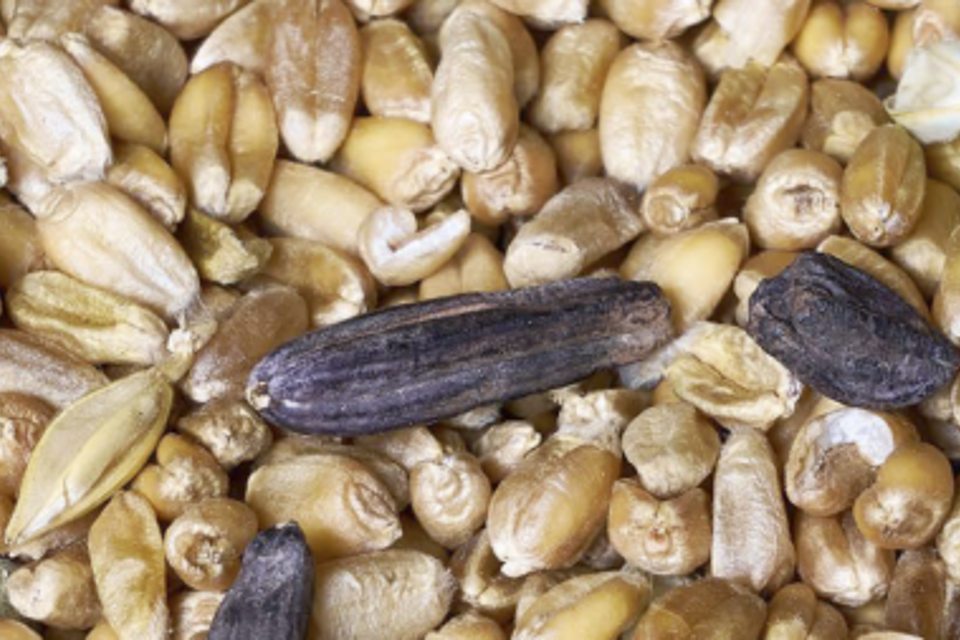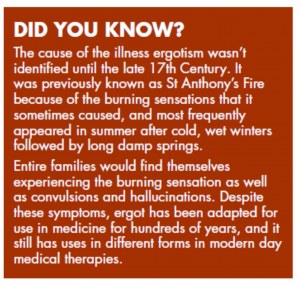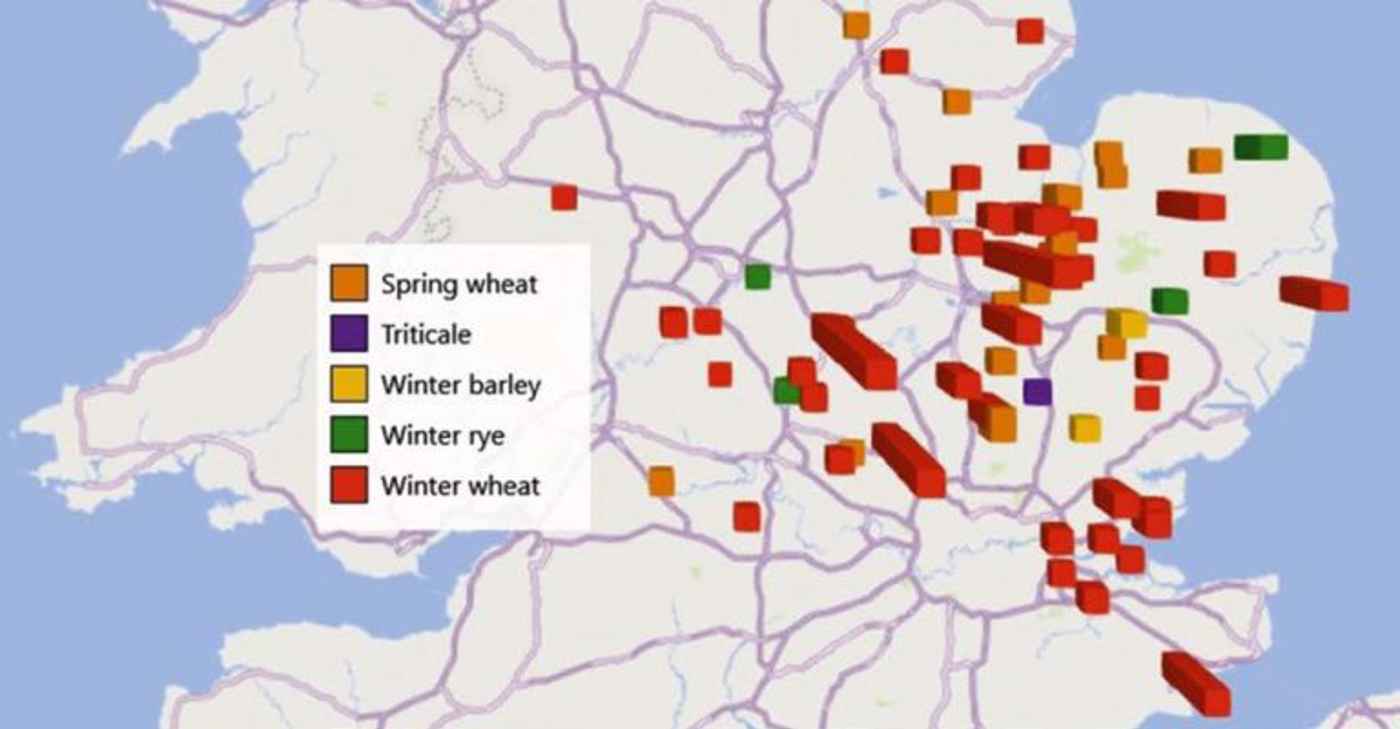
Ergot Explained
News - 07.11.22
Ergot is a fungus that grows on rye, triticale, wheat and barley, and to a lesser extent, oats. It also affects a wide range of grasses, particularly blackgrass.

The removal of ergots from affected crops has improved significantly in recent years through the application of colour sorting technology. The building of Agrii’s latest colour sorter took place this summer.
WHAT IS ERGOT?
Ergot is a fungus that grows on rye, triticale, wheat and barley, and to a lesser extent, oats. It also affects a wide range of grasses, particularly blackgrass. Although the disease has a relatively small effect on yield, ergots contain large amounts of toxic alkaloids that can pose a pose a risk to animal and human health. This means that stringent controls exist to prevent ergots getting into livestock feed and there is effectively zero tolerance for grain going for human consumption.
Ergots are managed in traded crops through grading, rejection or deductions. The removal of ergots from affected crops has improved significantly in recent years through the application of colour sorting technology. At Agrii, we have offered a mobile cleaning service for a number of years with a new state-of-the-art mobile colour-sorter commissioned earlier this summer.
There is no varietal resistance or chemical control of ergot. As a result, the disease remains prevalent on farm and influenced by the evolution in agricultural practices, including:
- Less control through ploughing with the general shift to low or non-tillage systems
- Blackgrass remains widespread and acts as a significant host for the disease
- Grain rye is increasing as a crop and is particularly susceptible
- Spring wheat is more affected than winter types due to its more open flowering habit
- Grass margins can increase disease where early flowering grass species are used
The incidence of the disease is affected by weather conditions during flowering. As our predecessors in the 1600s discovered (see info box), cool, dull, and wet weather tends to increase spore production, prolongs flowering and increases secondary tillering, which can all lead to higher levels of infection.
Ergot can be readily identified in crops prior to harvest and farmers are advised to handleheavily infected areas differently, for example, by harvesting field headlands and tramlines and storing separately until it can be cleaned.
As ergots only remain viable for one year in soil, sowing a non-cereal crop, ploughing to at least 5cm and minimising grass weeds will reduce the amount of inoculum. Keeping an accurate record of where ergot has been most prevalent will also help assist in future decisions on rotations.

Ergot and Seed
Sowing clean seed will prevent planting inoculum into clean land. Seed treatments like Beret Gold, Redigo Pro and Vibrance Duo act by reducing the germination of ergot and the incidence of disease in the growing crop.
Seed certification plays an important role in minimising ergot through seed multiplication. Ergot is not strictly a seed-borne disease, but it can be carried through in infected seed. At Agrii a strict limit is set on our Master Seeds certified seed of 1 ergot piece in a 2kg sample for wheat, barley and oats and 4 pieces for hybrid barley and rye. The Master Seeds standards are higher than the lower industry certification standards of 2 and 12 pieces in a 2 kg sample, respectively.

Ergot Incidence and Severity, 2022
The map above shows the prevalence of ergot in farm crops cleaned by Agrii in 2022. The colours indicate the crop type and the length of the bar shows the relative tonnages processed.
It is no surprise that winter wheat is the most frequently cleaned crop but there is also a significant amount of spring wheat. There are only occasional crops of winter barley and rye process by Agrii.
If you’re worried about ergot contamination on your farm, please get in touch with your usual Agrii agronomist, or Mark Taylor, Agrii’s National Farm Saved Seed Business Manager on 07836 527251/mark.s.taylor@agrii.co.uk.
Join Our Community

Agrii X
We love engaging with clients and partners. Give us a follow and let's share stories for the community.

Agrii Instagram
A picture paints a thousand words. Follow us on Instagram to see what we are up to.

Agrii Facebook
Follow us on the worlds biggest social media site for the latest news and events straight to your feed.

Agrii LinkedIn
If you are all about the business, connect with us on LinkedIn to build your network
Stay In Touch

Journal Sign-Up
Receive email updates on topical news and information from around Agrii and UK Farming.

Listen To Our Podcasts
Listen to the Tramlines Podcast. Fortnightly chat about agriculture and trials with your host Tony Smith.

Agrii Insights
Read essential agri intelligence for profitable farming.

Find an Event
Join us for our upcoming events and tours.



